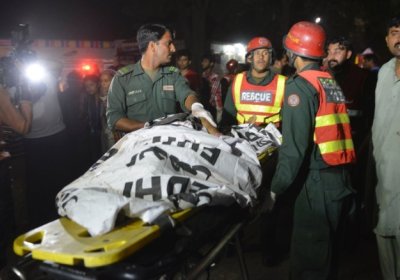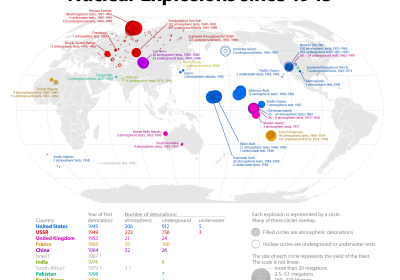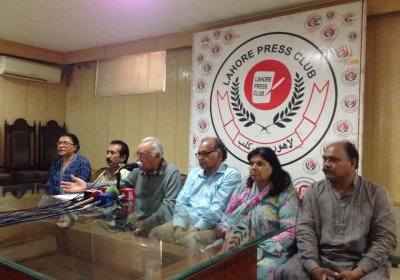 Okara, April 17.
A gathering of thousands of peasants in the Okara District of Punjab, to mark International Peasants Day on April 17, went ahead despite a violent crackdown by the police, paramilitaries and the army. The gathering was organised by the Tenants Association of Punjab (AMP) and supported by the Awami Workers Party (AWP).
Okara, April 17.
A gathering of thousands of peasants in the Okara District of Punjab, to mark International Peasants Day on April 17, went ahead despite a violent crackdown by the police, paramilitaries and the army. The gathering was organised by the Tenants Association of Punjab (AMP) and supported by the Awami Workers Party (AWP).
Pakistan
 Okara, April 17.
A gathering of thousands of peasants in the Okara District of Punjab, to mark International Peasants Day on April 17, went ahead despite a violent crackdown by the police, paramilitaries and the army. The gathering was organised by the Tenants Association of Punjab (AMP) and supported by the Awami Workers Party (AWP).
Okara, April 17.
A gathering of thousands of peasants in the Okara District of Punjab, to mark International Peasants Day on April 17, went ahead despite a violent crackdown by the police, paramilitaries and the army. The gathering was organised by the Tenants Association of Punjab (AMP) and supported by the Awami Workers Party (AWP).
A series of suicide bombings in Brussels on March 22 killed 35 people, including 3 suicide bombers. Less than a week later, on March 27, a similar attack in Lahore, Pakistan, killed more than twice as many people — at least 75.
Protests erupted throughout Pakistan after the shooting dead on the picket line of three striking workers at Karachi Airport on February 2. The Pakistan International Airlines (PIA) employees were part of a nationwide strike against the privatisation of the state-owned airline.
One of those killed, Inayat Raza, was a veteran trade unionist and former leader of the left-wing National Students' Federation (NSF) in Karachi in the 1980s.
The following statement was released by Socialist Alliance (Australia) on February 3.
* * *
Socialist Alliance (Australia) condemns the murder by the Pakistani military on January 30 of Dr Mannan Baloch, Secretary General of Baloch National Movement (BNM), and four other BNM members. According to eyewitnesses, the military attacked the house where they were staying with mortar fire, then troops entered and shot each of the occupants in the chest and head. The youngest victim was just 19 years old. All the victims were unarmed.
Temperatures across the Middle East this week have soared in an unprecedented heat wave, forcing residents to stay indoors.
In the Iranian city of Basrah, located in the epicentre of the heat wave, temperatures exceeded 48°C for the seventh day in a row on August 1.
On the same day, the Iraq capital of Baghdad sweltered through its fourth consecutive day of temperatures higher than 48 degrees. Governments from both countries have been forced to declare public holidays to protect people from the sweltering temperatures.
 Police evict I-11 residents. Photo: Awami Workers Party.
Thousands of residents of Sector I-11 informal settlements in Islamabad faced off against armed police and bulldozers of the Capital Development Authority (CDA) to prevent them from demolishing their homes on July 27.
Police evict I-11 residents. Photo: Awami Workers Party.
Thousands of residents of Sector I-11 informal settlements in Islamabad faced off against armed police and bulldozers of the Capital Development Authority (CDA) to prevent them from demolishing their homes on July 27.
 Protest by Awami Workers Party-Sindh against exacerbation of heatwave by corruption and electricity privatisation. Hyderabad, Sindh, June 28. Photo: Awami Workers Party-Sindh/ Facebook.
The death toll in Pakistan's devastating heat wave shot past 1000 on June 25. This makes it the worst heat wave to hit the country's southern city of Karachi in at least 35 years.
Protest by Awami Workers Party-Sindh against exacerbation of heatwave by corruption and electricity privatisation. Hyderabad, Sindh, June 28. Photo: Awami Workers Party-Sindh/ Facebook.
The death toll in Pakistan's devastating heat wave shot past 1000 on June 25. This makes it the worst heat wave to hit the country's southern city of Karachi in at least 35 years.
On May 18, Baba Jan was declared the official candidate of the Awami Workers Party (AWP) by the returning officer of Gilgit-Baltistan Legislative Assembly constituency Hunza 6. Baba Jan is in jail serving a life sentence.
This is the first time in the history of the Hunza Valley that a political activist will contest general elections from jail.
Gilgit-Baltistan is a Himalayan territory administered by Pakistan.
In April last year, the government of the Marshall Islands announced it would be taking nine nations — China, France, India, Israel, North Korea, Pakistan, Russia, Britain and the US — to the International Court of Justice (ICJ) in The Hague over their possession of nuclear weapons.
The following statement was released by Aasim Sajjad Akhtar, Punjab president of the Awami Workers Party, in response to the Pakistani government stating it intended to join the US-backed Saudi-led military intervention in Yemen.
* * *
The Awami Workers Party held a protest in Islamabad on March 17 against the Pakistani establishment's response to recent terrorist attacks.
The establishment's response has been a mixture of inaction, misdirected repression, collusion with terrorists and promotion of their communalist and religious fundamentalist ideology.
The following statement was released by Aid/Watch, an independent monitor of international aid and trade, on March 5.
* * *
Australia spends $577 million a year on aid for Papua New Guinea (PNG). Two key focus areas are anti-corruption related — law and justice, and governance.
PNG has concurrently undertaken a number of national processes to combat corruption without Australian support.
- Previous page
- Page 5
- Next page








